NAWAMED Sicily: a strategic document to support public authorities to manage and valorise non-conventional resources
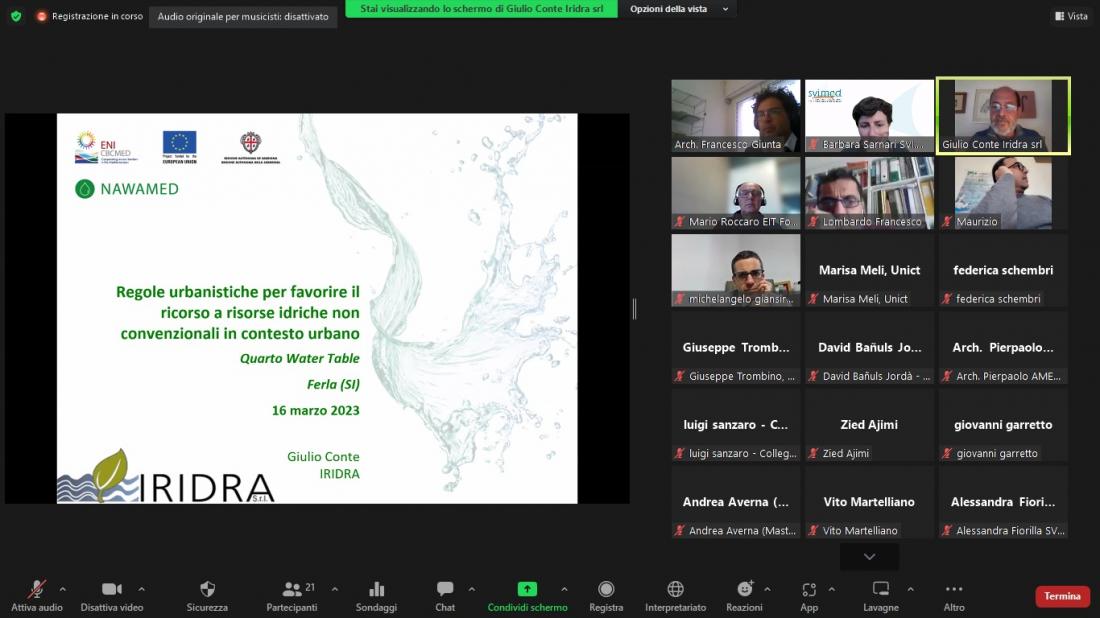
The fourth and final Water Table of the NAWAMED project, entitled “Tools and strategies for Regional implementation of non-conventional water: greywater and rainwater use”, marked the end of a three-years period of analysis and comparison.
The meeting, held on 16 March and attended by more than 20 people, focused on the presentation of a document titled "Contribution to the drafting or updating of Sicilian Municipal Regulations for water management".
The document was the result of several multidisciplinary operational meetings between SVI.MED., Iridra (partners of the Nawamed project), the Network of Technical Professions of Syracuse and finally with CERSU, the Regional Centre for Urban Studies of Sicily, which is an essential partner for municipalities seeking to address the complex challenges of urbanisation. CERSU provides a wide range of services, including technical assistance, capacity building and policy advice, and plays a crucial role in helping municipalities adopt the Regional Building Code, approved by Sicilian region the last May 2022. This fundamental aspect makes CERSU a key player for this final phase of the project for upscaling and mainstreaming the proposed solutions.
The document addresses to the Sicilian Municipalities the bases for the implementation of the Regional Standard Building Code (RET). On one hand, it establishes the general principles on which building activities must be based and, on the other hand, it asks the local administrations to integrate the specific local regulations defined by each municipality according to the characteristics of its territory. It also deals with the articles in which the Municipalities must act in order to be able to manage water-related issues at both domestic and urban level: such as urban rainwater drainage systems, water networks in newly constructed buildings or those subject to demolition and reconstruction, and finally prescriptions relating to areas of urban transformation and design, which must provide for a specific design of the water management system. In addition, the document contains simple prescriptions that can make a difference in a land management process within the scope of intervention of local authorities and planners.
This document was introduced by Francesco Giunta (Network of Technical Professions of Syracuse), while Giulio Conte (Iridra) explained the more technical part of the document. He illustrated the 3 areas that concern urban planning and/or building regulations and the simple prescriptions that the document wants to propose. Giulio Conte also moderated the debate to reflect on systemic issues and challenges for the future. Giuseppe Trombino, President of CERSU, confirmed his organisation's great interest in incorporating this document into the guidelines it is developing at regional level, in order to continue to work together for the active involvement of municipalities and to promote these issues in other planning instruments as well. In particular, he stressed the fundamental importance of the issue, pointing out the lack of clarity in some articles of the RET and the need to act in this direction, especially with regard to land use, which is closely linked to the water issue.
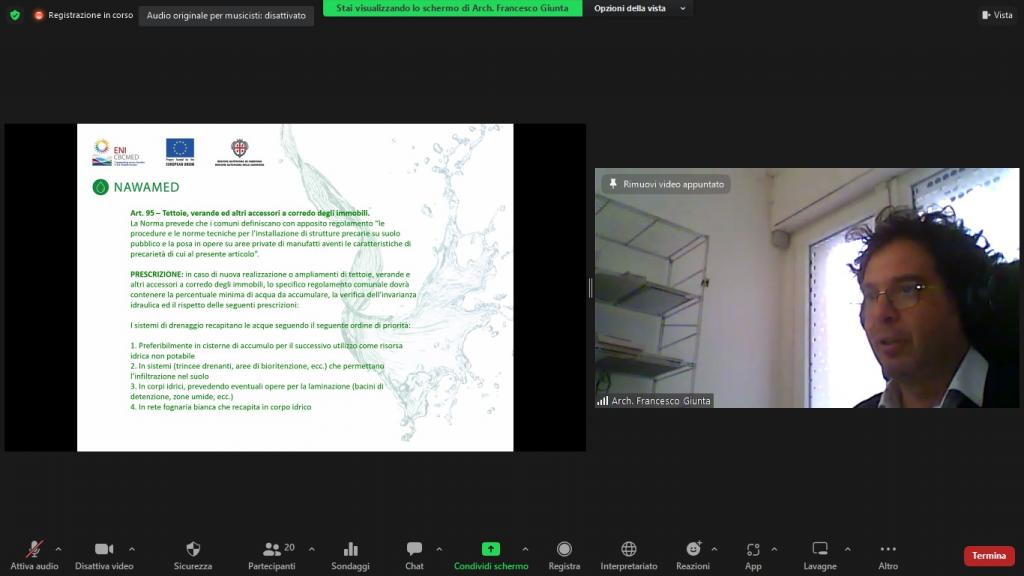
Prof. Marisa Meli, Professor of Civil Law at the University of Catania and Director of the Master in Environmental Law at the University of Catania, stressed the need for a cultural change and the importance of developing an interdisciplinary approach to education. She emphasised the need for local communities to be more proactive on these issues, as they have been in the past and as they are doing now on energy issues, involving citizens and all local actors.
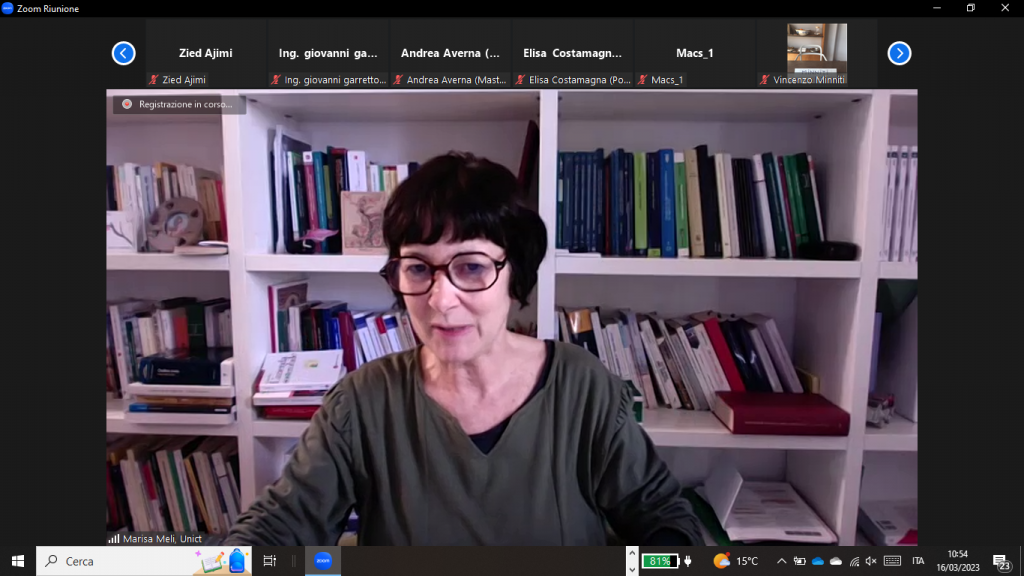
Prof. Martelliano, Associate Professor of Urban and Landscape planning at the University of Catania, pointed out the need to focus on the culture of water, a culture that has always united the different shores of the Mediterranean. The concept of management from a "retro-innovation" perspective, i.e. looking back to the past in order to understand the present and imagine the future through solutions based on nature, must be central to training processes. Finally, emphasis was placed not only on reuse, but also on the non-use of resources that will inevitably become scarce.
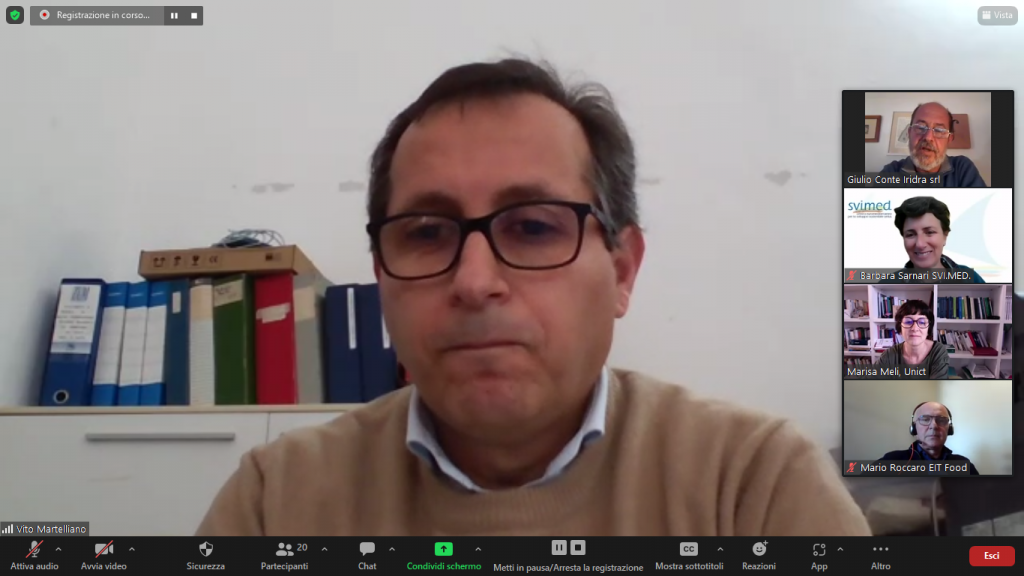
This view is also shared by public representatives, such as the Mayor of Ferla, Michelangelo Giansiracusa, who has accepted the challenge of making people understand that water is a limited resource and that it is therefore necessary to promote a water culture among the population as a common value.
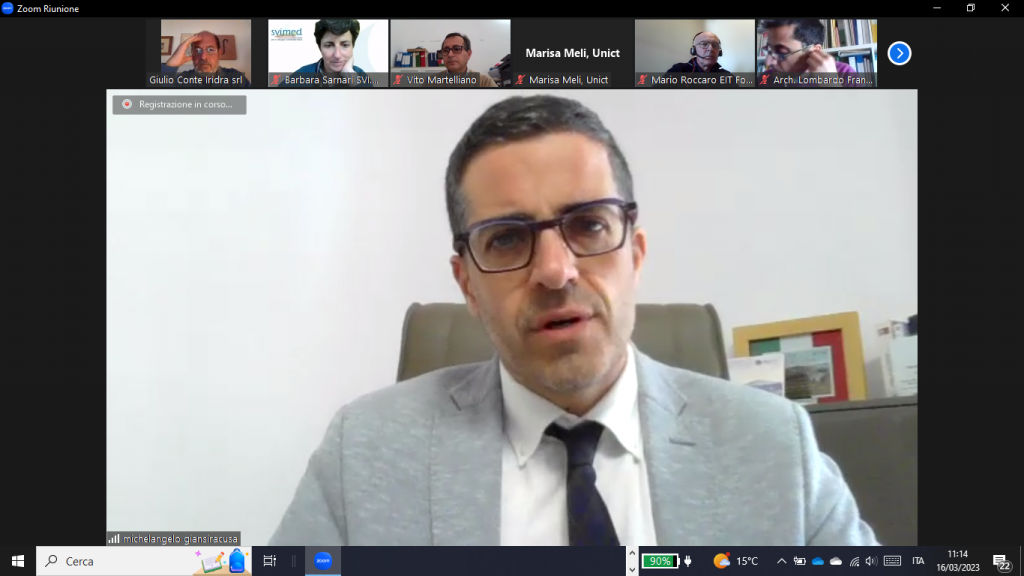
The next step is the training of the professionals and technicians to be able to apply the proposed solutions and of the decision makers in order to transfer the document and to support them in the valorisation and the management of the non-conventional water. Three days of workshops will be held in Syracuse and Ferla (SR), led by Iridra and SVI.MED, with the support of the Network of Technical Professions of Syracuse, CERSU, the Municipalities of Syracuse and Ferla.







